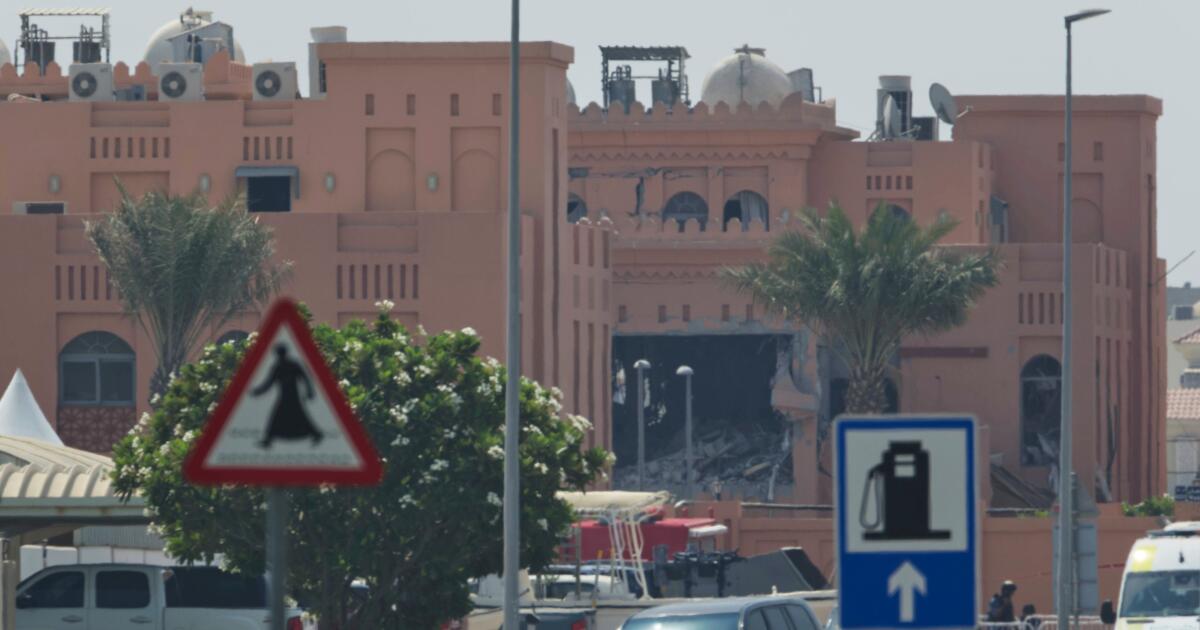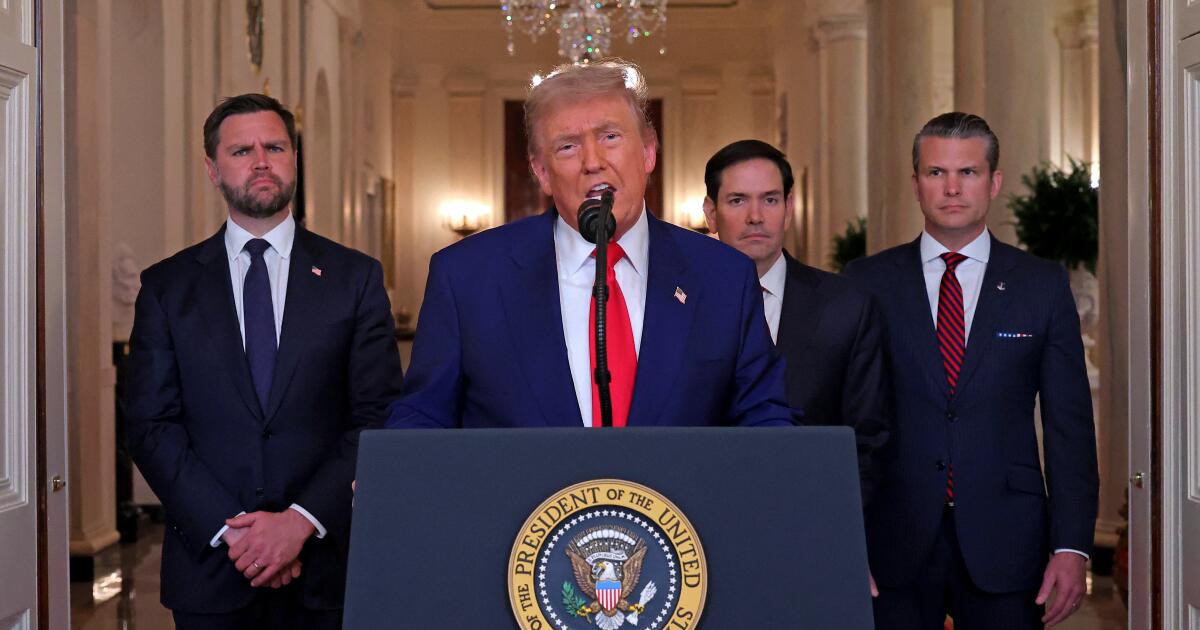Trump signs an executive order vowing to defend Qatar in the wake of Israel’s strike
DUBAI — President Trump has signed an executive order vowing to use all measures, including U.S. military action, to defend the energy-rich nation of Qatar — though it remains unclear just what weight the pledge will carry.
The text of the order, available Wednesday on the White House’s website but dated Monday, appears to be another measure by Trump to assure the Qataris following Israel’s surprise attack on the country targeting Hamas leaders as they weighed accepting a ceasefire with Israel over the war in the Gaza Strip.
The order cites the two countries’ “close cooperation” and “shared interest,” vowing to “guarantee the security and territorial integrity of the state of Qatar against external attack.”
“The United States shall regard any armed attack on the territory, sovereignty or critical infrastructure of the state of Qatar as a threat to the peace and security of the United States,” the order says.
“In the event of such an attack, the United States shall take all lawful and appropriate measures — including diplomatic, economic, and, if necessary, military — to defend the interests of the United States and of the state of Qatar and to restore peace and stability.”
The order apparently came during a visit to Washington on Monday by Israeli Prime Minister Benjamin Netanyahu. Trump organized a call by Netanyahu to Qatar during the visit in which Netanyahu “expressed his deep regret” over the strike that killed six people, including a member of the Qatari security forces, the White House said.
Qatari officials did not immediately respond to a request for comment on Trump’s order. However, the Qatari-funded satellite news network Al Jazeera prominently reported about it Wednesday under the headline: “New Trump executive order guarantees Qatar security after Israeli attack.”
The true scope of the pledge remains in question. Typically, legally binding agreements, or treaties, need to receive the approval of the U.S. Senate. However, presidents have entered international agreements without the Senate’s approval, as President Obama did with Iran’s 2015 nuclear deal with world powers.
And ultimately, any decision to take military action rests with the president. That uncertainty has clouded previous U.S. defense agreements in Trump’s second term, such as NATO’s Article 5 guarantees.
Qatar, a peninsular nation that sticks out into the Persian Gulf, became fantastically wealthy through its natural gas reserves. It has been a key U.S. military partner, allowing America’s Central Command to have its forward operating base at its vast Al Udeid Air Base. President Biden named Qatar a major non-NATO ally in 2022, in part due to its help during America’s chaotic withdrawal from Afghanistan.
In the aftermath of the Israeli attack, Saudi Arabia entered a mutual defense agreement with Pakistan, bringing the kingdom under Islamabad’s nuclear umbrella. It’s unclear whether other Gulf Arab countries, worried about Israel as well as Iran as it faces reimposed United Nations sanctions over its nuclear program, may seek similar arrangements as well with the region’s longtime security guarantor.
“The Gulf’s centrality in the Middle East and its significance to the United States warrants specific U.S. guarantees beyond President Donald J. Trump’s assurances of nonrepetition and dinner meetings,” wrote Bader al-Saif, a history professor at Kuwait University who analyzes Gulf Arab affairs.
Gambrell writes for the Associated Press.

